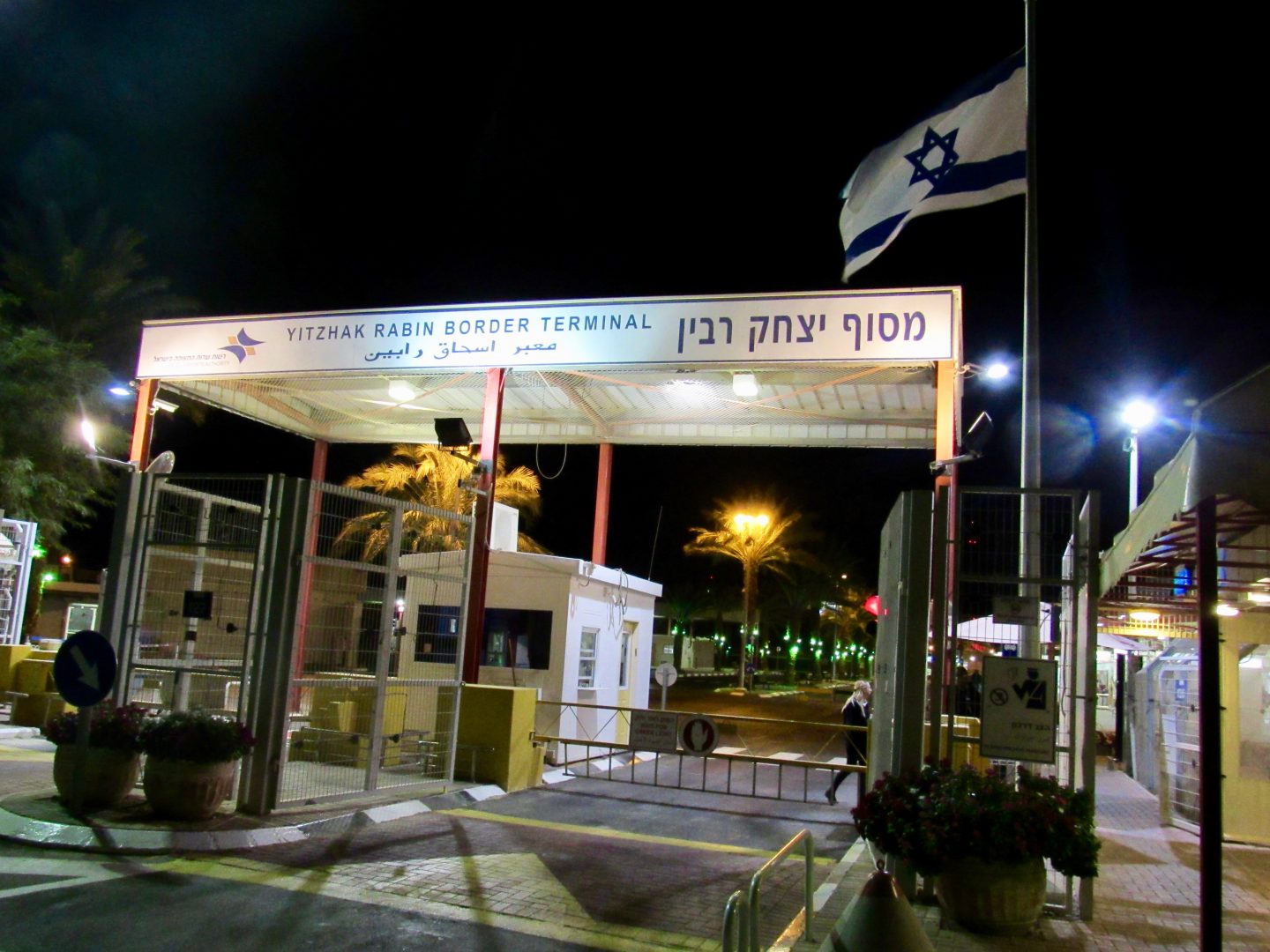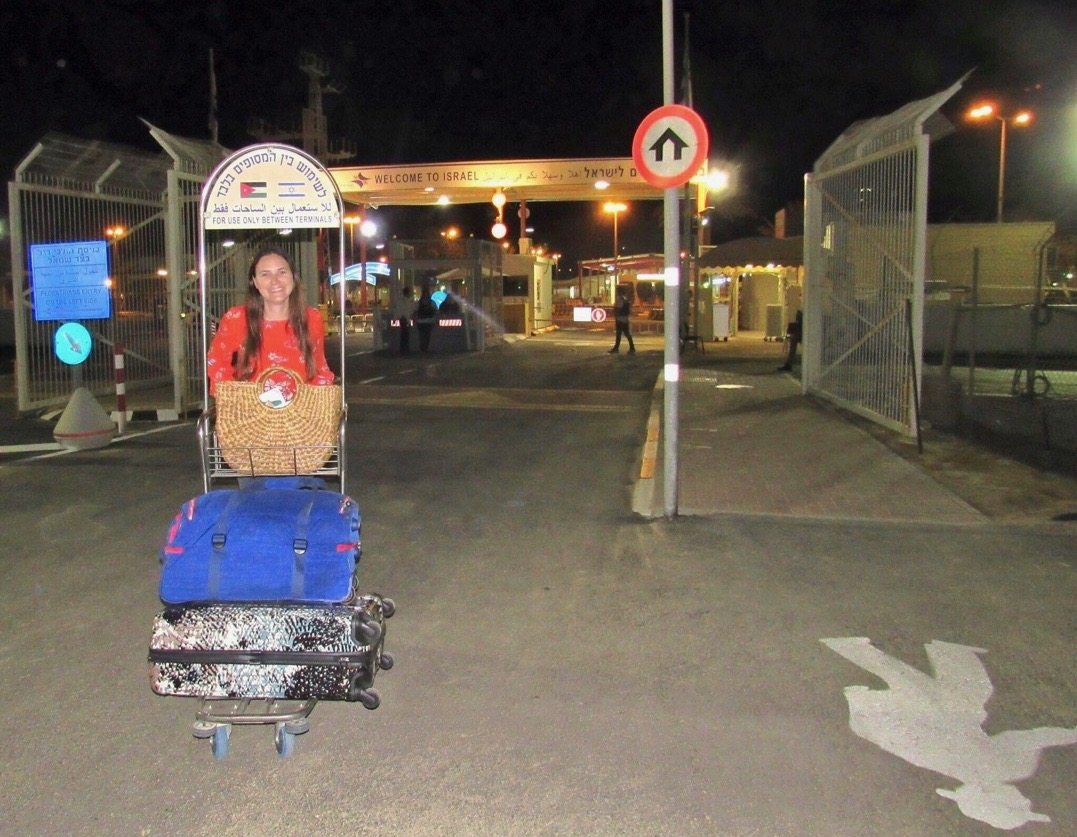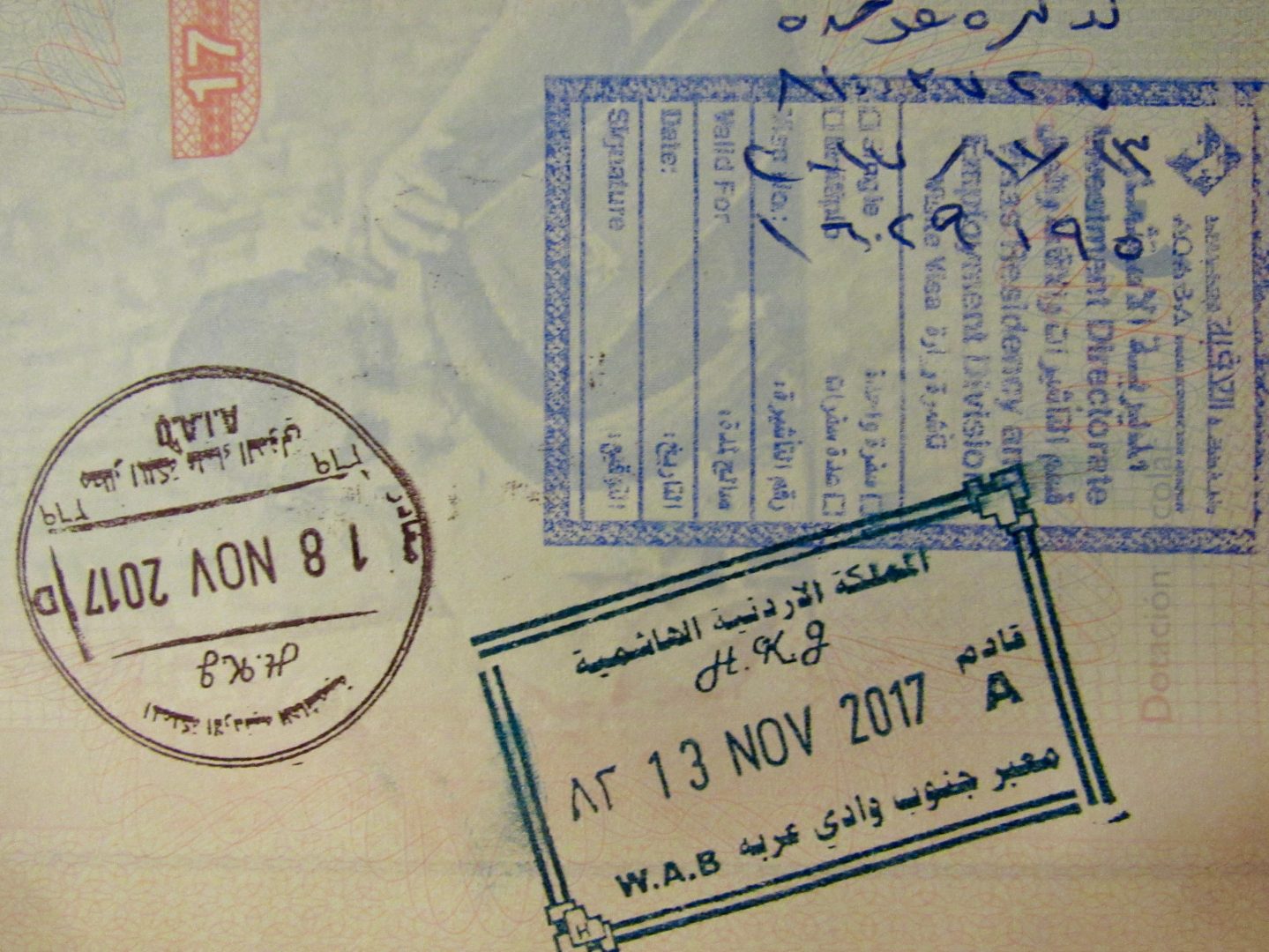Many tourists travel from Israel to Jordan to visit the neighboring country. Despite its proximity, crossing the border can be complicated.
The first thing you should know is that Israel and Jordan signed a peace agreement in 1994. Therefore you can go without a problem, unlike other Arab countries that do not recognize the state of Israel. You can also cross from Israel to Egypt.
Travel by plane from Israel to Jordan
You can only travel by plane from Ben Gurion International airport in Tel Aviv. The only airline that flies direct is Royal Jordanian. The flights last 45 minutes and are twice a day. One at 8:30 a.m. and another at night, with a variation in the schedule according to the day of the week.
When I looked for this option I found plane tickets from Israel to Jordan round trip at $500+, while one-way cost about $ 300. I found it quite expensive for such a short flight. There were cheaper options but they were not direct and involved going through countries like Turkey or Egypt. Considering the time and cost, I discarded this option. The good thing about going by plane is that you can get a visa when you arrive at the airport.

Visa to travel to Jordan
Here is where things gets complicated. Many countries do not need a visa to go to Jordan because it is supposedly a visa upon arrival. But of the three land borders, only Beit She’an / Sheikh Hussein gives you the option to get the visa on site. To use the other two borders Eilat / Aqaba (Wadi Araba) and Allenby Bridge / King Hussein Bridge you must have your visa beforehand.
There are many tour operators that sell tours to Jordan from Israel. If you take one of these tours, the company handles the visa process. We wanted to go on our own, so this was not an option. You can apply for a visa to Jordan at your country’s embassy before the trip. Another option is to apply for a visa at the Jordanian embassy in Tel Aviv. The problem is that it is difficult to find the embassy and that you will lose all day obtaining the visa. It is also quite expensive, 360 NIS (about $90).
Buy the Jordan Pass and the visa is free
The best option we found was the Jordan Pass, which costs JD 70 ($99) and includes a visa. It also includes access to 40 attractions in Jordan, including Petra. The only major attraction that is not included in the Jordan Pass is Bethany Beyond the Jordan, the baptism site of Jesus. If you want to include it it costs you 8 JD which is a 33% discount.
We decided to buy the Jordan Pass. If you wonder why the Jordanian government decided to do something like this, the answer is simple: they want people to spend the night in Jordan. They are tired of people taking tours from Israel by day or by night.
For the Jordan Pass to apply you must stay 3 nights / 4 days in Jordan.
If you do not comply with this requirement they will charge you JD 60 ($85) plus 10 JD ($14) on departure (if you fly the 10 JD are included in your plane ticket). There is so much to see in Jordan and people are very friendly, so it is worth staying at least 4 days in the country.
Cross from Israel to Jordan over the Allenby Bridge / King Hussein Bridge
Allenby Bridge or King Hussein Bridge is the border with the most traffic even though it is prohibited for the Israelites. Citizens of Israel cannot use this border, even if they have another passport. This border is located 5 kilometers east of Jericho in Palestine. As it is near the Dead Sea, the border of the Allenby Bridge or King Hussein Bridge is 273 meters below sea level.
Only Palestinians and tourists can use this border. Palestinians living in West Bank use it to leave their country. If they want to travel abroad they must leave crossing this border and travel to Amman, as they are not allowed to travel from the Tel Aviv airport. This border can be slow, sometimes it takes about three hours as they check the Palestinians a lot. It is the closest border to Tel Aviv and Jerusalem. It is also only 54 minutes from Amman, the capital of Jordan.
The schedule from Sunday to Thursday is 8 a.m. at 12 a.m. and tourist groups can enter Israel until 9 p.m. Fridays and Saturdays it opens from 8 a.m. at 3 p.m. but tourists can only enter until 12 noon.

Cross from Israel to Jordan by Beit She’an / Sheikh Hussein
This is the least traveled border. You can take an Egged bus in Israel up to 7 km before the border, from there you have to take a taxi and get to the border. If you pass on foot there is a bus that takes passengers from one border to the other that leaves every 25 minutes and costs 5 NIS ($1.50).

Cross from Israel to Jordan by Eilat / Aqaba (Wadi Araba)
As I wanted to dive in the Red Sea in Aqaba, we decided to use this border. It was certainly the right decision. The hotels in Aqaba are cheaper than the hotels in Eilat. Eilat and Aqaba are super close but the taxi on both sides are a mafia, which makes the crossing a bit more expensive. You must negotiate with them.

We took a bus from Jerusalem to Eilat and from there a taxi to the border. The border operates from 6:30 a.m. to 8 p.m. from Sunday to Thursday and from 8 a.m. to 8 p.m. Fridays and Saturdays. Since we got to the border at 7 p.m. there were almost no tourists. We went to the window of Israel to pay our exit tax and proceeded to leave the country on foot. Between one border and another there is a street with lousy pavement and I had two suitcases. The workers on the border in Israel were friendly and lent me a cart (like those from the airports) to pack my bags.

We were 3 women arriving in Jordan and the migration agents were super flirtatious. It was the most different border crossing experience I’ve had. One even invited my mother to go out on a date, and my mother was about 30 years older than him! They took their time while chatting with us.
Both borders were very friendly, we didn’t feel they questioned us too much. Because of the situation in the region, the authorities treat tourists quite well because they need them. Some friends did tell me that they got questioned more, but the important thing is to answer clearly and say that one is a tourist.
Important remarks
If you are going to cross on Saturday you should keep in mind that there is no public transport service in Israel and you must coordinate a private transportation. As it is Shabbat the taxi or tour operators charge more expensive.
It is not possible to cross with a rented car.
Those who will go to Lebanon afterwards cannot have an exit stamp from Israel to Jordan. Israel does not seal passports, it only gives a white paper. But Jordan’s entry seal by land is evidence that you were in Israel. You should ask immigration officers not to seal you, I’m not sure if this is allowed, but I read in some blogs that it can be done.
If you enter Israel, you cannot enter many Arab countries that do not recognize this country. I have two passports so this was not a problem for me, but you should keep this in mind, since Lebanon deportes you if you see evidence of a trip to Israel.





